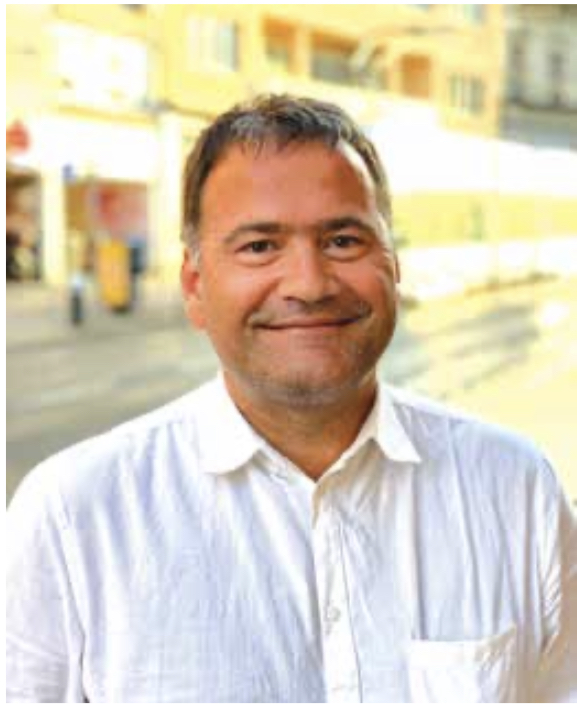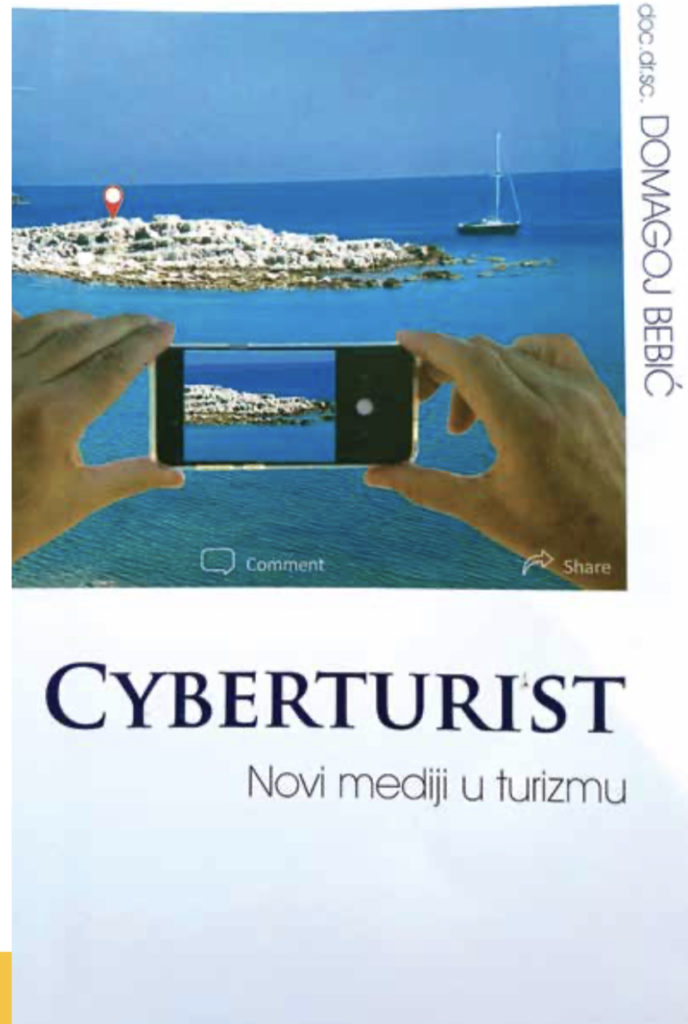This post is also available in: Croatian
THE FUTURE OF OUR TOURISM AS SEEN BY AN EXPERT – COMPETENCE AND KNOWLEDGE AS GUIDE MARKS IN DIFFICULT TIMES
In these seriously difficult and uncertain times, when coronavirus has redefined our reality in all its aspects, competence and knowledge have never been more significant. In these times of uncertainty, we have turned to people whose expertise and knowledge instil confidence and a sense of security.
We met with an expert of such kind, associate professor Domagoj Bebić, the holder of the chair on New Media and the head of the Department for Strategic Communication on Faculty of Political Science in Zagreb, and the coordinator and representative of all IPSA research committees – the greatest international association of political scientists. We talked about the interrelation of coronavirus and tourism, one of the most complex social-economical phenomena that has been significantly affected by the pandemic.

1. Lately, we have been witnesses of the dramatic effect of the pandemic on global travel – in which way has coronavirus particularly altered its dynamics?
I would like to point out that, at the moment, the most important thing for everyone is to keep ourselves and our loved ones safe. On the other hand, some people are pessimistic. If we take a look at the numbers, it all does seem a bit negative – air traffic is practically non-existent, there’re a sense of fear among the world’s travellers, and I think we are close to a point when we have to redefine the term zero point and start with some new processes, and this will happen when we gain some more insight into the nature of this virus.
The global COVID-19 pandemic has definitely postponed the beginning of the tourist season, we have witnessed many reservation cancellations just several days before the tourist season as we know it should have started. I believe that uncertainty is one of the things that has affected this delay the most. The whole situation and its uncertainty as far as epidemiological measures are concerned have brought caution in terms of the booking of accommodation, as well as a decrease in the number of guests.
2. In your opinion, is it likely that this situation will have long-term consequences and permanently alter the travel market? Can you single out some of the specific segments where long-term changes are to be expected?
I believe that this should only be a kind of setback, but once the danger disappears, things will slowly fall back into their place and within a reasonable amount of time, the numbers will reach those of pre-pandemic times. I also believe that all of us will somehow change the way we act. Most likely with time we’re going to acquire some new habits, but we’ll certainly need some time to adjust and get used to the “new normal”. It is to be expected that after this storm the tourist market, the situation will start to stabilise and a new balance will be reached. I don’t think that this is the time for pessimism, but for an opportunity to learn a lesson and try to adapt to these new circumstances.
3. What about mass tourism? Is it, in the light of new events, a finished story?
Out there in the world, including here in Croatia as well, some new models of tourism have started to be encouraged such as sustainable tourism, green tourism, the growing and enjoying of organic food… The coronavirus situation only brought them up to surface and I think that it’s the right time for tourist workers to start to invest in them. As soon as the pandemic is over, sustainable tourism and the green economy will become the new normal. This new situation has prevented mass tourism from rising. As I previously pointed out, I believe we will, meaning all of us together, acquire some new habits and adapt to new trends. This situation will most certainly bring about some new trends and habits, but I believe that the tourist sector will soon recognise and adjust to the needs of guests. The Split-Dalmatia County Tourist Board has proved to be very successful in adapting to new situations on many occasions, which is the most important characteristic for successfully doing business in tourism.
4. What are your predictions about the nature of “new” tourists, or perhaps it’s better to say, the tourist of the future?
They are completely networked, the primary way of communication being social networks and new media. I believe this situation will encourage guests to be more open to different tourist offers, to explore new possibilities. The new type of tourist will be more open to somewhat different, specific offers and vacation models.
5. How do you envision Croatia on the world tourist map? Is there a segment in which our country as a destination can look for an opportunity or do we have some special advantage?
Croatia is one of the leaders in exclusive and expensive tourism. In this segment we are very creative, developed and expensive – which I don’t think is bad. In my opinion, this sector attracts global emissive markets, although there is a dose of public criticism on the exclusive part of tourism, but this is the branch in which we can offer the most.
I’ve already singled out the Tourist Board of Split-Dalmatia County as a leader when it comes to adapting to new situations, new trends and novel needs of tourists. We should also keep in mind that the advantage of Croatia is its natural resources that enable guests to try numerous possibilities in just a few minutes’ ride. From secluded beaches, programmes in city centres to being able to enjoy themselves in isolated locations full of unexplored natural beauty.
6. What would you recommend to the leading people in Croatian tourism – what should be the base of their marketing strategy?
Creativity. This is the key to success. We are definitely not that creative, and we have every right and freedom to be. The audience’s span of attention has decreased, their hectic lifestyle has changed their habits, so it’s important to emphasise the creativity of the content to attract the attention of the target audience. Also, all discussions on global markets point out the importance of providing tourists with information about security, which has to be specially emphasised during this period.

Domagoj Bebić is author of the book -Cybertourist, new media in tourism.
Cybertourism stands for the change in tourist communication patterns and tourist promotion. Due to the change that was introduced with the rise and popularisation of new media today we
deal with completely new communication rules and practices. The development and popularisation of social media has redefined core media practices.
This post is also available in: Croatian
